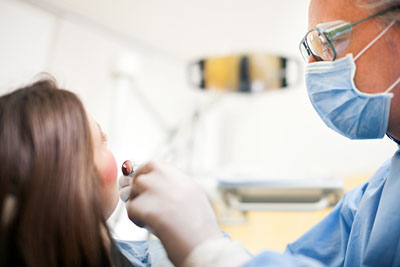What To Expect When Seeing a Sedation Dentist

If the thought of going to see a dentist sends shivers down your spine, you might need a sedation dentist. These are dental professionals who have lots of experience administering sedatives that make dental visits more enjoyable for those with dental anxiety.
Dental anxiety is a serious issue that many wrestle with. Some would rather deal with an agonizing toothache than schedule a visit to the dentist. Since dental phobias keep people from getting treatments they need, people who experience them are more likely to develop severe serious complications that require extensive treatments.
A sedation dentist can help such people get past the fear of dentists while providing any treatments they need. Sedation dentistry saves patients time and money in the long-run, not to mention, sparing them the agony that comes with many dental issues.
What to expect when you visit a sedation dentist
Most of the sedatives used during sedation dentistry keep the patient awake, with deep sedation and general anesthesia being the exceptions.
The different levels of sedatives the dentist might use include:
- Minimal sedation: The patient stays awake but relaxed during the treatment
- Moderate sedation: The patient remains conscious, but their speech and memory might be impaired
- Deep sedation: The patient is right on the edge of consciousness. They might fall asleep while its administered, but they can be easily woken up without any medication
- General anesthesia: The patient is unable to feel pain and is unconscious during the procedure
Commonly used sedatives in dentistry
Here are some of the more commonly used sedatives:
1. Nitrous oxide
Most people know this as laughing gas. It is delivered with a nose mask and it keeps patients relaxed during treatments. It only takes a few minutes for the patient to feel the effects of the gas, and it wears off just as fast. In many cases, the patient will be able to drive themselves home after being sedated with nitrous oxide.
2. Oral sedatives
This involves the use of sedatives that keep patients relaxed before and during dental visits. Drugs like Halcion and Valium are typically used for this purpose. The patient takes the medication an hour prior to their appointment, and it helps them to overcome their fear of going to the dentist.
These sedatives tend to make people drowsy, so transportation to and from the clinic should be arranged.
3. IV sedation
This is a stronger type of sedation that involves delivering the medication directly to the patient's bloodstream intravenously.
4. Deep sedation and general anesthesia
This type of sedation makes the patient partially or fully unconscious. A person who is placed under general anesthesia cannot be woken up easily until the drug wears off or its effects are reversed with medication.
Sedation makes dental visits more pleasant
Dentists typically combine sedatives with local anesthetics to give their patients a pain-free experience. Stop by our Stuart clinic if you are one of the millions of people who have dental anxiety.
Request an appointment here: https://drdelucia.com or call Anthony DeLucia D.D.S., P.A. at (772) 492-7045 for an appointment in our Stuart office.
Check out what others are saying about our services on Yelp: Read our Yelp reviews.
Related Posts
Dental implants and dentures are two common options for replacing missing teeth, each offering unique benefits. Understanding their key differences can help patients choose the most suitable solution for their oral health and lifestyle. While both restore the smile's function and appearance, there are significant differences in durability, comfort, and maintenance.One of the biggest differences…
Achieving a bright, functional smile can be life-changing, and dental implants stand out as a dependable solution for replacing missing teeth. These implants anchor into the jawbone, restoring comfort and the aesthetics of natural teeth. However, proceeding with this procedure requires thoughtful preparation and clear communication with a dental professional. Below are five important topics…
Implant-supported dentures have the look and feel of natural teeth, and these appliances also need to be carefully cleaned and maintained like natural teeth. When combined with healthy practices, implant-supported dentures can offer many dental health benefits.First, their stability can allow patients to enjoy a wider variety of healthy foods. Eating a varied diet can…
Seeking a secure, natural-looking way to replace missing teeth often leads individuals to explore dental implants. This modern solution places a titanium post in the jawbone, topped by a lifelike crown, and can offer stability and reliability. However, ensuring that implants heal successfully involves paying close attention to food choices, especially in the days and…
